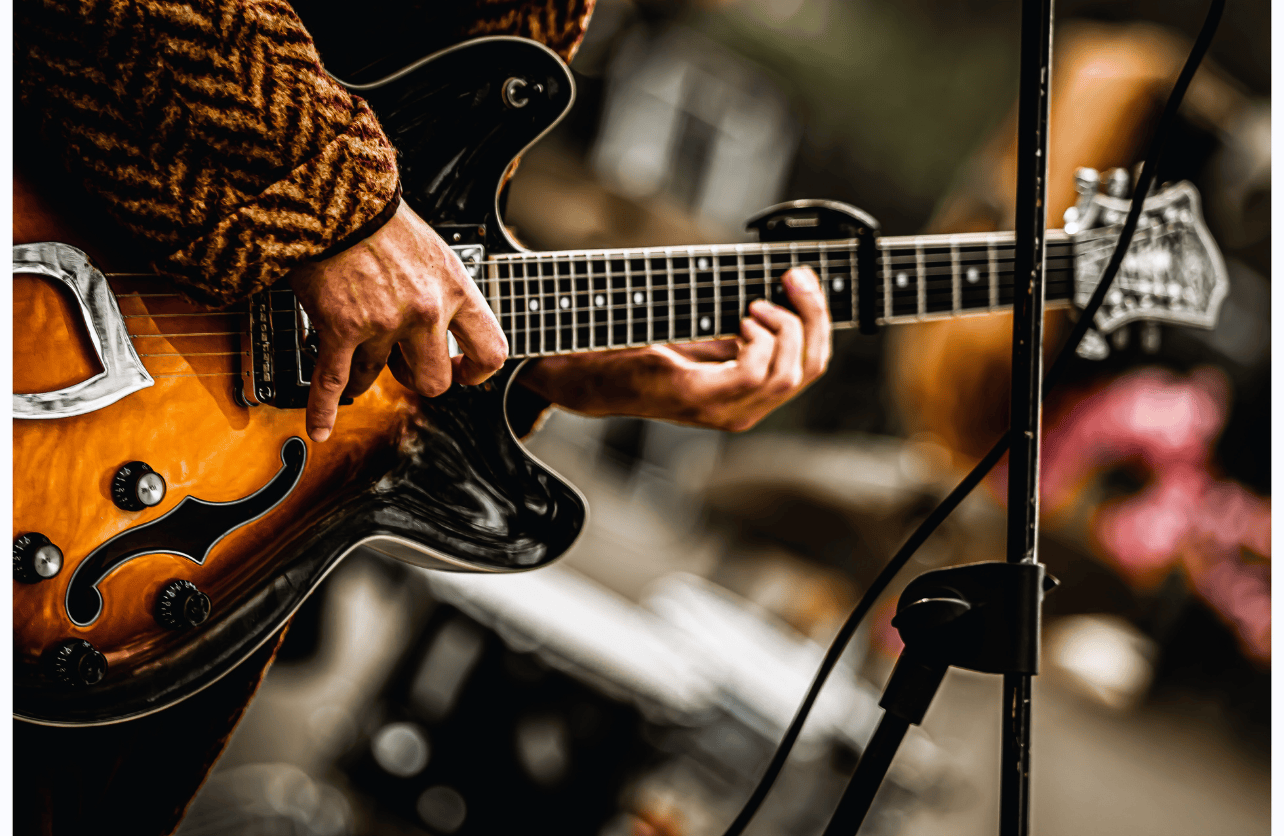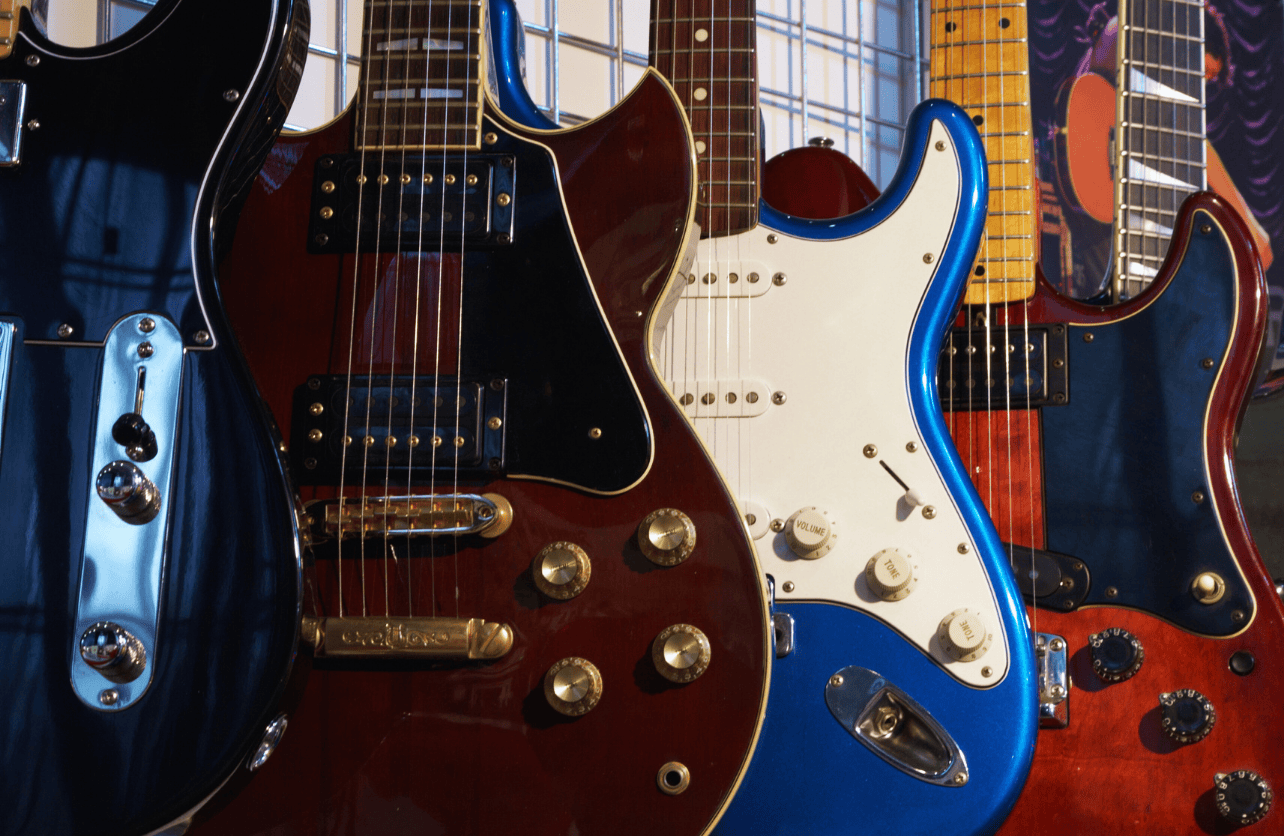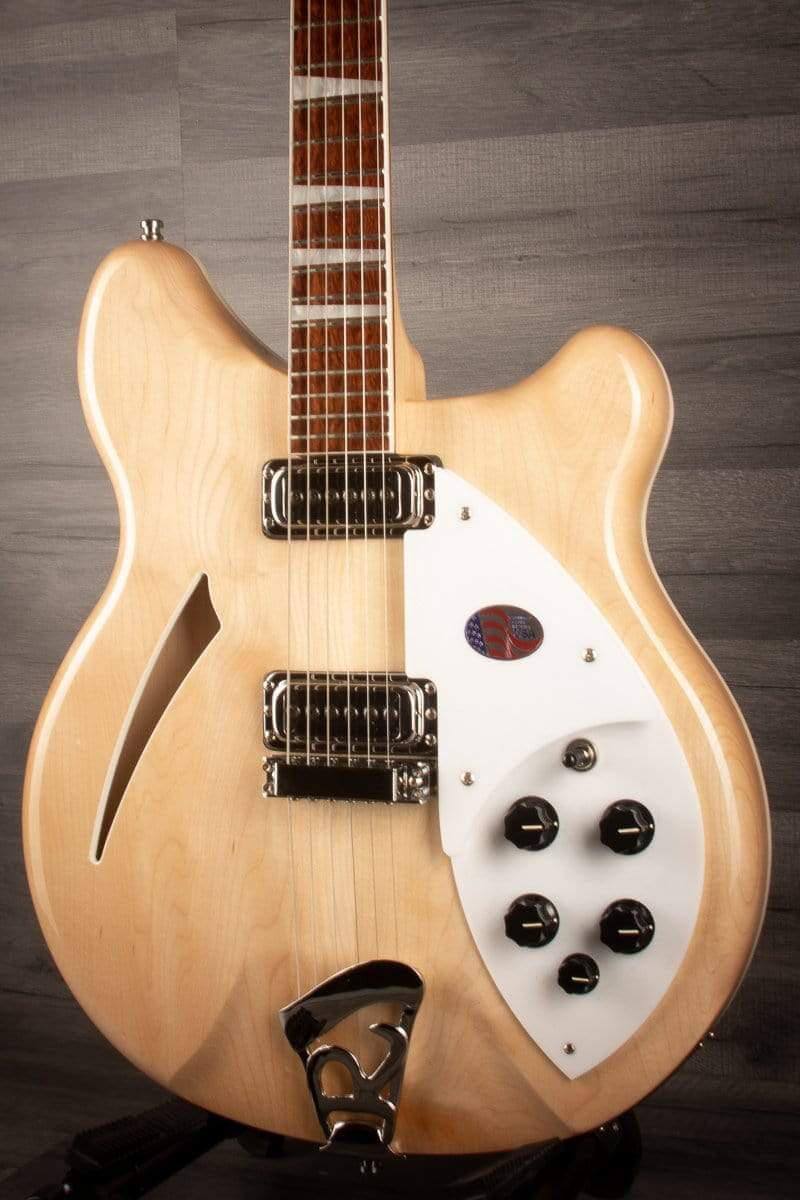Hollow vs. Solid-Body Electric Guitars: Which One Is Right for You?

When it comes to electric guitars, the choice between a solid-body and a hollow-body instrument can significantly impact your playing style, tone, and overall experience. Both designs have their own strengths and limitations, making them better suited for different genres, techniques, and amplification settings. Whether you’re a beginner looking for your first electric guitar or an experienced player looking to refine your sound, understanding the differences between these two guitar types will help you make an informed decision.
What Is a Solid-Body Guitar?

Solid-body electric guitars are made from a single piece (or multiple glued pieces) of wood with no internal chambering. Since there is no hollow space inside, these guitars rely entirely on their pickups and amplification to produce sound, rather than any acoustic resonance from the body itself.
Key Characteristics of Solid-Body Guitars
- Bright, Focused Tone: Because they lack a resonant chamber, solid-body guitars produce a tighter, more controlled sound with longer sustain. They are perfect for high-gain genres like rock, metal, and punk, where clarity and power are essential.
- Less Feedback Issues: Hollow guitars tend to generate unwanted feedback when played at high volumes, but solid-body guitars can handle aggressive distortion and amplification with ease.
- Durability: Without a hollow interior, solid-body guitars are more resistant to damage from humidity, temperature changes, and physical impact.
- Weight Considerations: These guitars are generally heavier than their hollow-body counterparts, which may be a factor for players who perform long sets or prefer lightweight instruments.
Best Genres for Solid-Body Guitars
Solid-body guitars excel in genres that require sustain, distortion, and a controlled frequency range. These include:
- Rock
- Metal
- Punk
- Hard Blues
- Pop
- Country (modern styles)
Some of the most famous solid-body guitars include the Fender Stratocaster, Gibson Les Paul, and PRS Custom 24—all of which are used by rock legends and modern players alike.
What Is a Hollow-Body Guitar?

Hollow-body guitars feature a fully hollow design, similar to an acoustic guitar, with f-holes on the top to help with resonance. This results in a warmer, more natural tone that blends the characteristics of an electric and an acoustic instrument.
Key Characteristics of Hollow-Body Guitars
- Warm, Resonant Tone: The hollow chamber allows for a rich, full sound with strong bass and midrange frequencies. This makes them highly sought after for jazz, blues, and vintage rock styles.
- More Prone to Feedback: While the resonance is beautiful, hollow-body guitars can be difficult to manage at high volumes, especially when using distortion. Feedback can be an issue in louder settings.
- Lighter and More Comfortable: These hollow-body guitars are significantly lighter than solid-body models, making them more comfortable for long playing sessions.
- Some Acoustic Qualities: Hollow-body guitars produce a louder, more resonant sound when played unplugged, making them a great option for players who want to practice without an amp.
Best Genres for Hollow-Body Guitars
Hollow-body guitars are often associated with jazz, but they also shine in several other genres, including:
- Jazz
- Blues
- Classic Rock (think early Beatles or Rolling Stones)
- Rockabilly
- Country (traditional styles)
Famous models include the Gibson ES-175, Gretsch White Falcon, and Gibson L5, all of which have been used by legendary jazz musicians and rock icons.
Semi-Hollow Guitars: A Middle Ground?

If you love the warmth of a hollow body but need a little more control and sustain, you might consider a semi-hollow guitar. These instruments have a solid block of wood running through the center while still maintaining some open resonance chambers.
Semi-Hollow Characteristics:
- More sustain and less feedback than a hollow-body
- Still has a warm, airy tone with added resonance
- A great choice for blues, classic rock, and indie music
Notable semi-hollow models include the Gibson ES-335 and Rickenbacker 360, both of which offer a balance between warmth and control.
How to Choose the Right Guitar for You
If you’re unsure which type of electric guitar suits you best, consider these factors:
What Genre Do You Play?
- If you play rock, metal, or pop, a solid-body guitar will provide better sustain and distortion control.
- If you’re into jazz, blues, or classic rock, a hollow-body guitar will provide the warm, natural tone you need.
- If you want versatility, a semi-hollow guitar might be the perfect compromise.
Do You Play at High Volumes?
- If you perform in loud venues with heavy amplification, a solid-body guitar is your best bet to avoid feedback issues.
- If you play in smaller, more controlled settings, a hollow body can shine with its natural resonance.
How Important Is Comfort?
- Hollow-body guitars are lighter, which can make them easier to play for long periods.
- Solid-body guitars can be heavier, but many players don’t mind the extra weight in exchange for durability and tone.
What’s Your Budget?
- Both types of guitars come in a range of prices, but hollow-body guitars tend to be more expensive due to their complex construction.
- If you’re looking for affordability and durability, a solid-body is usually the better choice.
Summing Up
There’s no right or wrong choice when it comes to picking between a hollow-body and a solid-body guitar—it all depends on what works best for your playing style and musical preferences.
- A solid-body electric guitar is a safe choice if you want a powerful, versatile instrument that can handle any style or volume.
- If you love warm, organic tones and play in lower-volume settings, a hollow body might be your perfect match.
- If you want a bit of both worlds, a semi-hollow guitar can offer the best of both designs.
Ultimately, the best way to decide is to try them out yourself. Head to your local music store, plug into an amp, and see which one feels and sounds right for you.
Your Trust, Our Core Commitment
At Rising Tech, earning and maintaining your trust is the cornerstone of our mission. We're dedicated to transparency, impartiality, and the relentless pursuit of truth in every article, review, and recommendation we publish. Our commitment to these principles ensures that you, our valued reader, are always equipped with reliable and unbiased information. Let us be your trusted guide in the ever-evolving world of technology.